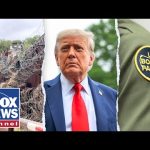Americans are rightly unsettled by the latest reporting on 3I/ATLAS, the interstellar visitor that showed up in our neighborhood this year and has behaved in ways some scientists call “unusual.” What started as another detection by the ATLAS survey has ballooned into a national conversation about whether our institutions are telling the whole truth — and whether our government is slow to treat even a low‑probability threat with the seriousness it deserves.
The basic facts are not in dispute: ATLAS found the object in early July 2025, and the Minor Planet Center quickly classified it as an interstellar visitor dubbed 3I/ATLAS, only the third of its kind ever confirmed. That rarity alone should make every patriotic scientist and policymaker sit up and pay attention — interstellar visitors are not routine; they are a once‑in‑a‑generation opportunity to learn, and a potential blind spot for national security.
What has raised eyebrows beyond the usual scientific curiosity are reports of odd behavior — rapid brightening, an unexpected glow, and amateur analyses claiming other small objects appearing alongside it in frames from space assets and terrestrial telescopes. Responsible people can and should debate interpretations, but the pattern of anomalies merits transparent, public answers rather than academic dismissiveness.
Harvard astrophysicist Avi Loeb, hardly a fringe voice in the public square, has been unambiguous about taking anomalies seriously and has urged active monitoring; he even floated the possibility that a massive object might function like a “mothership” that could, at perihelion, release smaller probes — a hypothesis he says his Galileo Project is actively watching for. Whether you find Loeb persuasive or not, his main point is conservative in spirit: follow the evidence, gather the data, and don’t let institutional groupthink stamp out legitimate inquiry.
At the same time, government officials and many mainstream scientists insist that 3I/ATLAS behaves like a comet and poses no danger to Earth, a reassuring line that should calm people — but not replace oversight. When public agencies say there is no threat, they should back that up with open data and fast answers so hard‑working Americans aren’t left to sort rumor from reality in comment sections and late‑night tweets.
This is where conservative common sense comes in: demand transparency, fund our own observation capabilities, and refuse to let a small number of credentialed elites monopolize the narrative. Our adversaries are watching the skies too, and every time Washington drags its feet or withholds information, it hands advantage to anyone — foreign or otherwise — who wants to exploit our confusion. Independent teams like the Galileo Project deserve support for extra eyes on the sky, but the federal government must be the leader in securing data and coordinating analysis.
Finally, let this episode be a wake‑up call to rebuild American scientific and reconnaissance muscle. We should treat unusual astrophysical events as both scientific opportunities and potential security questions, not as occasions for smug dismissal or partisan ridicule. Patriots know how to be curious without being gullible, and tough without being reckless — it’s time our institutions matched that mindset.




